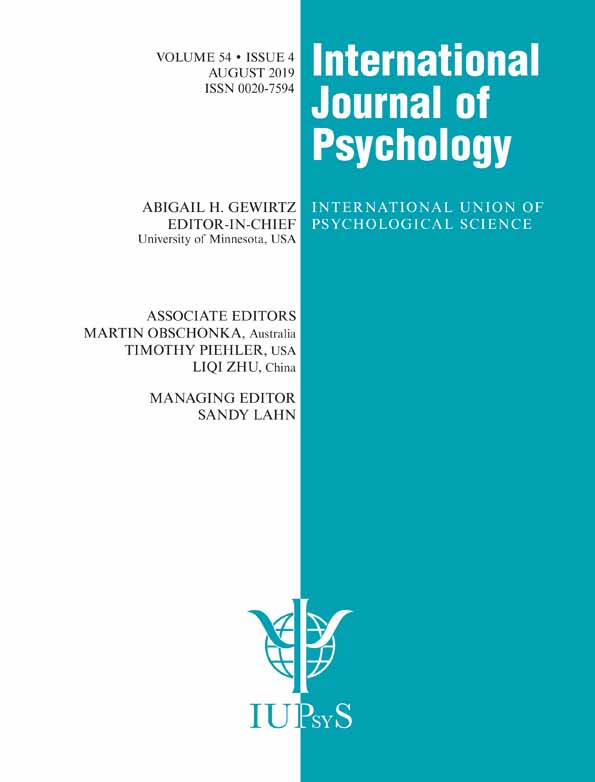Parent–child attachment as a mediator of the relationship between parenting style and gelotophobia among adolescents
This research is supported by the “Institute for Research Excellence in Learning Sciences” and “Higher Education Deep Cultivation Project” of National Taiwan Normal University (NTNU), sponsored by the Ministry of Education, Taiwan, R.O.C.
Wu, C. L. initiated the research topic and wrote the manuscript, Huang, Y. T. and Wang, P. Y. collected all the data, and Chen, H. C. supervised the project.
Abstract
Fear of being laughed at and family interaction are highly related. Parental over-control and over-protection influence children's excessive anxiety over being laughed at. Conversely, parental attachment is an important index of the parent–child relationship and is closely correlated to children's gelotophobia. However, is it the style of parenting or the outcome of parenting (i.e. attachment) that influences a child's gelotophobia? To answer this question, the present study analysed the relationships between gelotophobia, perceived parenting of children and parent–child attachment, as well as the mediating role of attachment between parenting and children's gelotophobia, using a sample of 373 high-school students. The results show that being highly communicative and close attachment completely weakened the negative correlation between warm, caring parenting and the child's gelotophobia; moreover, being highly communicative and close attachment, together with over-protective and over-controlling parenting, influence children's gelotophobia. In sum, this study indicates that parent–child attachment has a direct and indirect influence on perceived parental care and protection and children's fear of being laughed at.




